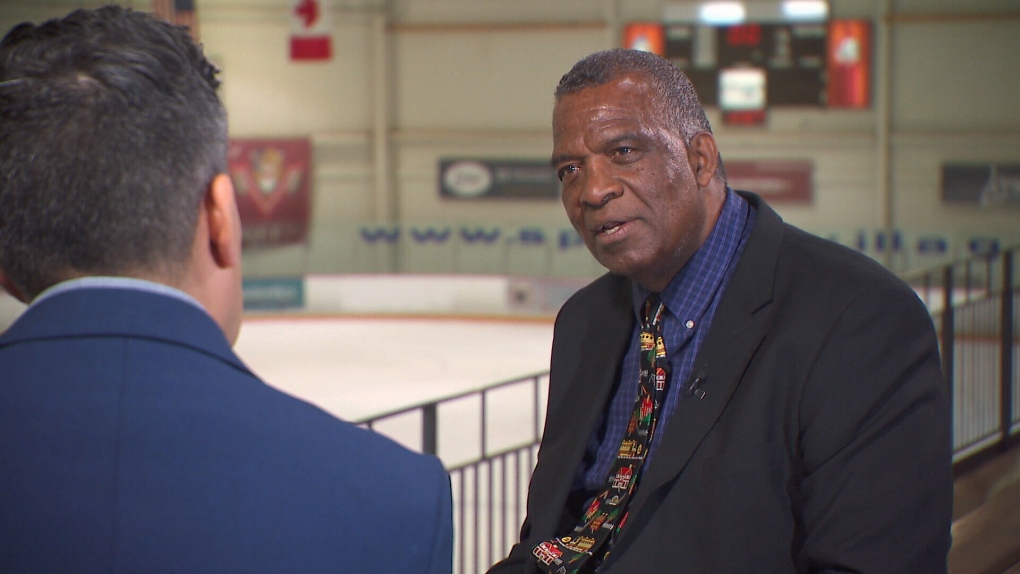
One of Canada’s most high profile hockey parents believes “there’s something not right about” the sheer volume of online gambling advertisements being fed to Canadians.
Karl Subban isn’t just the father of three successful hockey players in PK, Malcom and Jordan, he’s also spent much of his professional life as a school principal.
Sitting rink side at a Toronto area arena with CTV National News, the school principal — who has also added grandfather to his resume — shares that he’s acutely aware of just how impressionable children and adolescents are.
“We know what the science tells us, that the part of the brain that is responsible for decision making is not fully developed until you’re 25,” said Subban.
If you’ve turned on a television in Canada to watch live sports over the last year, then you’ve been encouraged to take part in a different game. But it’s not just sports betting advertisements flooding the airways. Sports broadcaster TSN (which is owned by CTV’s parent company, Bell Media) is now producing and airing its own gambling segments on TV, radio and online. Rogers’ Sportsnet is also creating and churning out its own multi-platform sports betting content, featuring some of its most notable on-air talent.
This all began 13 months ago, when Ontario went all in, regulating the first internet gambling market in the country. Anyone who claims they’re of age can use a digital device to place a bet on almost any aspect of a game, or spin an online slot machine with the flick of a finger on a phone. As other provinces contemplate their own legislation, all eyes have been fixed on Ontario’s high stakes rollout.
However, the Alcohol and Gaming Commission of Ontario (AGCO) is now proposing a ban on the use of athletes, as well as celebrities who appeal to children, from internet gambling advertising and marketing. Their decision, which is still pending, could shape the gambling market across Canada.
The AGCO has been accepting submissions from “stakeholders” as they ponder the proposed changes to their “iGaming advertising standards.” In an email to CTV National News, the AGCO shared that they’ve “received approximately 40 submissions from a diverse range of stakeholders and are now conducting a detailed review of all the information received.”
However, there are fears that Ontario has “already created a monster,” according to a recovering gambling addict who spoke with CTV News on the condition of anonymity.
Steve, whose name has been changed for this story, leads weekly Gamblers’ Anonymous meetings. He tells CTV News that he’s met with families with children as young as eight years old.
“The eight year old took his mommy’s credit card out of her wallet without the mother knowing. He was betting on games and betting on anything he could. Even those games where you can buy tokens, he was buying thousands of dollars of tokens,” he said.
According to Steve, in total, the young child spent about $25,000.
“The fix was in at that point. When the mother found out about the credit card, this eight year old was smart enough to go into his Daddy’s wallet and take his credit card.”
Steve who lost his family, his house and his job to gambling, believes the current internet gambling market is setting the stage for generational damage, “[The government] keeps watering the [gambling] plant, the plant is growing because of all these commercials.”
In December CTV News spoke with Paul Burns, the CEO of the industry group, the Canadian Gaming Association. The association says regulated online gambling is safer than the alternative of the last several years.
“Canadians were accessing gaming with no controls, no oversight, no protection. And that’s what this has done, that’s been the biggest change in the last 12 months,” said Burns.
Steve doesn’t agree. He believes the regulated internet gambling market in Canada has resulted in an influx of people seeking out illegal bookies to place their bets.
“When people can’t get credit they move to the streets, and on the streets they’re always willing to give you credit. Bookies extend credit to people who can’t get it anywhere, if they can’t get a credit card, don’t have a job, it doesn’t matter.”
As for the influx of the sports betting commercials featuring everyone from Wayne Gretzky to Connor McDavid, Burns says the view of the Canadian Gaming Association is that “advertising is part of what comes with having a regulated gaming market and over time people will understand what the ads are.”
As he recites the number of sports betting advertisements his grandchildren have been exposed to over the current NHL season, Subban feels strongly that the commercials are “degrading the sport and ruining the experience for families watching at home.”
The legendary hockey father has now joined the group Ban Ads for Gambling, which is calling for sports betting advertisements to be removed from all hockey broadcasts.
CTV News asked Subban what his thoughts would be if his superstar son PK appeared in a sports gambling ad. The father of three replied, “I’m still going to love him, but I’m not going to love him in those ads.”
“It’s on them, it’s not on me. So many young people love him, but I don’t want the kids to love him in those gambling ads, and I’ll say that about any of the hockey stars who’re in these ads promoting something that doesn’t make us any better. It just makes some people richer,” he said.
When asked if banning celebrities and athletes from the advertisements is the answer, Subban believes “anything will help,” and goes on to say that there’s a “need to limit the volume of these ads because the athletes, actors and actresses in these commercials are so powerful and influential.”
The AGCO have yet to set a date for their decision on advertising standards for the gambling industry.